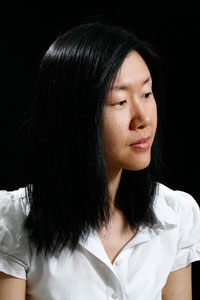The Sangha Supreme Council's (SSC) nomination of Somdet Phra Maha Ratchamangalacharn or Somdet Chuang to be the next supreme patriarch has sparked a series of heated debates and stirred up concerns in our Buddhist community over the weeks. The row mainly focuses on whether the 90-year-old monk who is abbot of Wat Pak Nam is truly qualified for the top job.
Entangled in the conflict are two groups of people with completely opposite views. The first is a group of Buddhists led by staunch critic Paiboon Nititawan, former chief of the Buddhism reform panel, who had tried to stop the SSC from nominating Somdet Chuang from the very beginning, citing the monk's dubious conduct.
Stepping out to defend the SSC's nomination is a group of monks led by Phra Methi Thammachan, deputy rector of Mahachulalongkornrajavidyalaya University. He often claims that the selection is in accordance with Sangha law which indicates that the SSC must nominate the most senior priest and that the prime minister is duty-bound to present the name to His Majesty the King for royal appointment.
Considering Somdet Chuang's rank as somdet phra racha khana, equivalent to a cardinal, he fits the criterion well. But what prompts many Buddhists to strongly oppose the nomination is the fact that he has a good relationship with the controversial Phra Dhammachayo, abbot of the super-rich Wat Dhammakaya.
Somdet Chuang was the preceptor of Phra Dhammachayo when he was ordained at Wat Pak Nam 47 years ago. But he gave himself a bad name when he failed in his job as head of the committee of the SSC to defrock his former disciple for embezzling 900 million baht in assets from his temple and distorting Buddhism. The SSC was instructed to act 16 years ago by the late supreme patriarch Somdet Phra Nyanasamvara. This historic case, which was closed in a short time without imposing any punishment to the monk, has cast the SSC in a very negative light ever since.
It's also no secret that Somdet Chuang has occasionally joined the activities hosted by Wat Dhammakaya, let alone having received big financial support from the temple. He once reportedly said that his temple and Wat Dhammakaya are like brothers and are bound to support each other.
His generosity in this regard might sound agreeable in a worldly sense. But as far as decency is concerned, what he has done is quite unacceptable in the eyes of most people. It's a shame that he doesn't realise how much Phra Dhammachayo and his temple have damaged the religion over the years with their new set of teachings which are completely opposite to Buddha's words. Instead of distancing himself from the corrupt monk, or at least warning him to stop cheating Buddhist followers, he seems to be glad to have maintained ties with him.
It's rather disappointing that most monks have chosen to keep mum about his apparent flaws. Besides activist monk Phra Buddha Issara, nobody in the clergy dares to question the SSC's judgment at all. What is even worse is that Phra Methi Thammachan, one of Somdet Chuang's loyal supporters, has always threatened to call for monks from across the country to stage a protest if the government fails to submit the name of Somdet Chuang for royal appointment.
It's strange that Buddhist followers and monks have judged the qualification of our new spiritual leader in such totally different ways. While the Buddhist group led by Paiboon place their priority on moral grounds and make it clear that they don't want a monk with a "history" like Somdet Chuang as the country's 20th supreme patriarch, the monks group led by Phra Methi Thammachan brush aside his questionable ethics and insist that his seniority is enough to make him qualify for the role.
Recently, social critic Sulak Sivaraksa, one of the country's most respected intellectuals, came out to voice his opposition against the nomination of Somdet Chuang. He warned that if the monk becomes the new supreme patriarch, Wat Dhammakaya will spread its wings even wider and traditional Buddhism in Thailand will be doomed. This is what many Buddhists have long been worried about and why they don't want to see Somdet Chuang reach his goal.
Some might be asking that if Somdet Chuang wasn't picked in the first place, who else could have been? Honestly, I have no idea. But as far as I know, most of the candidates remaining on the list are known to have good ties with Wat Dhammakaya as well.
The SSC has long been attacked for its incompetence in tackling problems within the clergy and many have put the blame on its autocratic, feudal system, saying that it contributes to the council's vulnerability to materialistic temptation.
However, I believe that the SSC would be able to hold on to its pride if all of its members could cultivate their moral qualities to be as high as the ranks they are blessed with and firmly adhere to moral righteousness as the overall criteria when judging serious matters.
Sadly, the controversy over its nomination of Somdet Chuang is the latest example that shows the SSC has once again failed to hold moral virtues in the highest regard.
A demand by many to have the SSC reformed, or else abolished, is louder every day. As a Buddhist who is concerned about the future of Buddhism in our country, I can't help but feel that something must be done, urgently.
Patcharawalai Sanyanusin is a writer of the Life section of the Bangkok Post.
